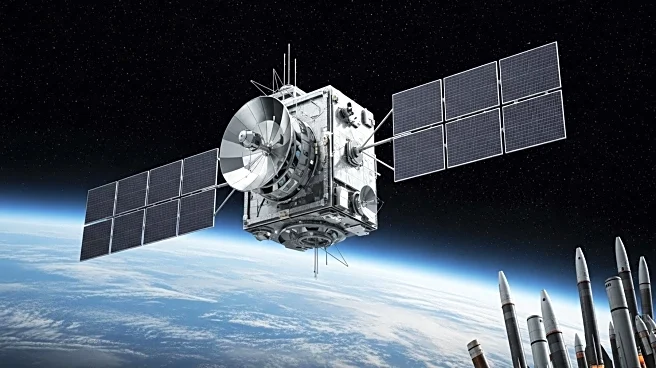What is the story about?
What's Happening?
China's low Earth orbit (LEO) satellite projects are facing delays due to the absence of advanced reusable launch vehicles. The Shanghai-based satellite operator Yuanxin has struggled to secure cost-effective launch services, resulting in halted satellite deployments since March. Yuanxin's Qianfan constellation aims to deploy 15,000 satellites, but progress has been slow. The lack of reusable liquid fuel rockets comparable to SpaceX's Falcon 9 has hindered China's ability to launch satellites efficiently. Despite efforts to procure suitable launch vehicles, the industry faces technical challenges and procurement issues.
Why It's Important?
The delay in China's LEO satellite deployment highlights the competitive challenges faced by Chinese space companies in comparison to international counterparts like SpaceX. The inability to match the launch frequency and payload capacity of Falcon 9 impacts China's ambitions in satellite internet and future 6G services. The high cost of Chinese commercial rocket launches further exacerbates the situation, limiting the country's ability to compete in the global satellite market. This situation underscores the need for technological advancements and strategic investments in China's space industry.
Beyond the Headlines
The technical shortcomings in China's satellite program reveal broader issues in the country's aerospace sector, including the need for innovation in satellite networking and inter-satellite communication. The reliance on terrestrial infrastructure and bent-pipe network topology limits the flexibility and efficiency of satellite operations. Addressing these challenges is crucial for China to enhance its satellite capabilities and compete effectively in the global market. The development of advanced satellite technologies and infrastructure could have long-term implications for China's position in the space industry.















